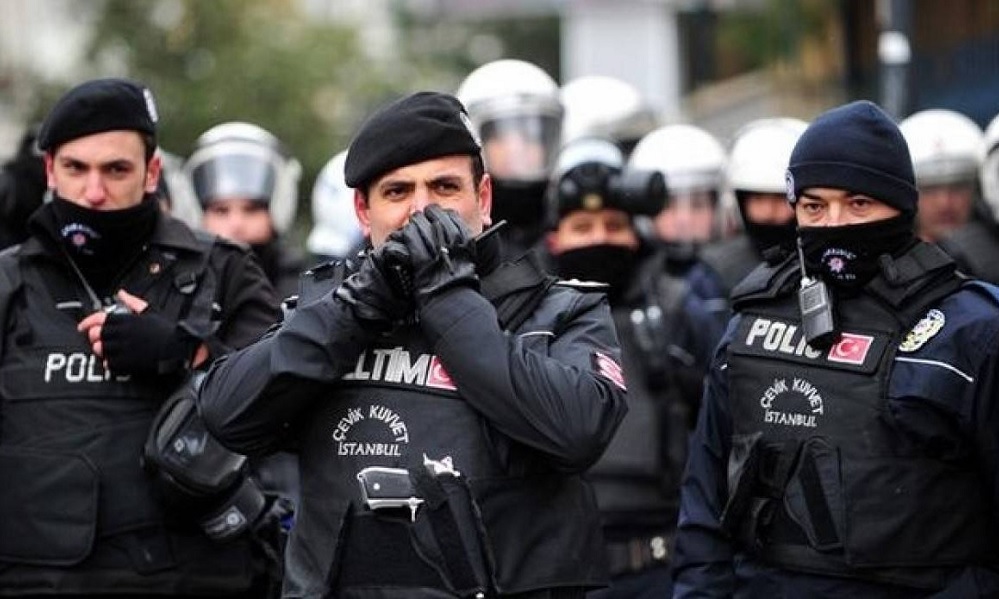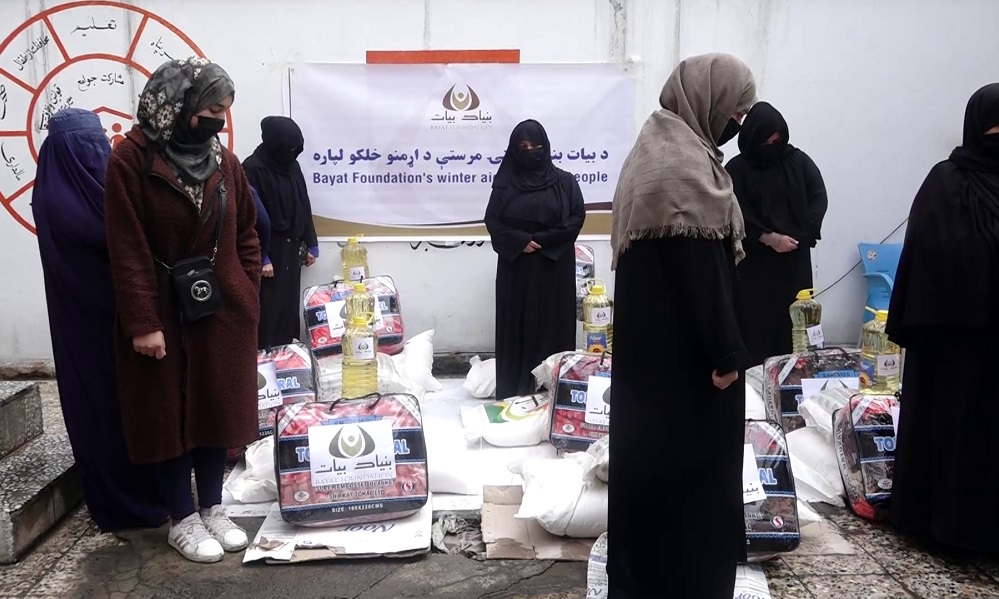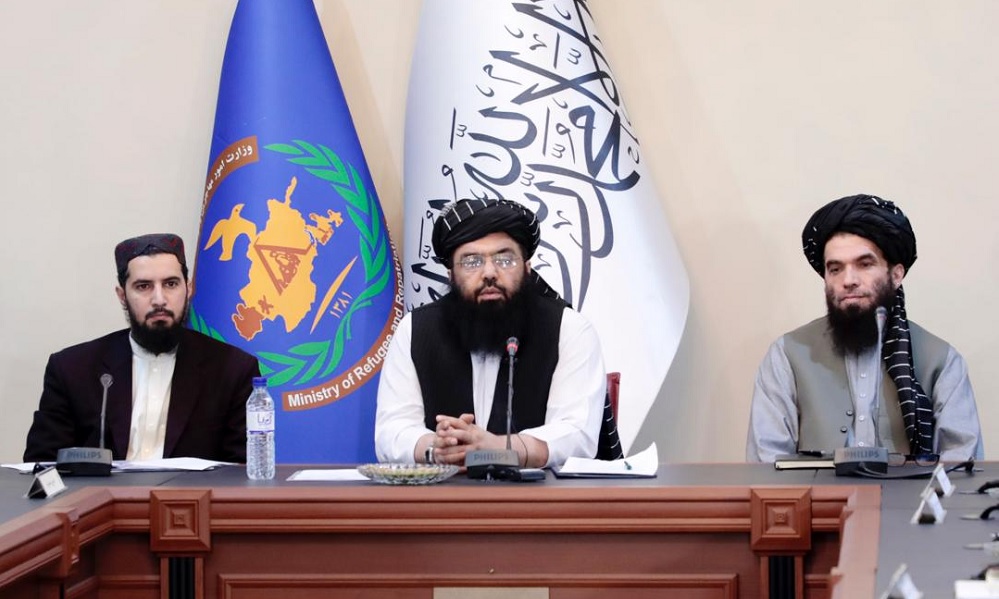Latest News
UN: 258 million people faced acute food insecurity in 2022

More than a quarter-billion people in 58 countries faced acute food insecurity last year because of conflicts, climate change, the effects of the COVID-19 pandemic and Russia’s war in Ukraine, according to a report published Wednesday.
The Global Report on Food Crises, an alliance of humanitarian organizations founded by the U.N. and European Union, said people faced starvation and death in seven of those countries: Somalia, Afghanistan, Burkina Faso, Haiti, Nigeria, South Sudan and Yemen.
The report found that that the number of people facing acute food insecurity and requiring urgent food aid — 258 million — had increased for the fourth consecutive year, a “stinging indictment of humanity’s failure” to implement U.N. goals to end world hunger, U.N. Secretary-General António Guterres said.
While the increase last year was due in part to more populations being analyzed, the report also found that the severity of the problem increased as well, “highlighting a concerning trend of a deterioration.”
Rein Paulsen, director of emergencies and resilience for the U.N. Food and Agriculture Organization, said an interplay of causes was driving hunger. They include conflicts, climate shocks, the impact of the pandemic and consequences of Russia’s war in Ukraine that has had an impact on the global trade in fertilizers, wheat, maize and sunflower oil, The Associated Press reported.
The impact has been most acute on the poorest countries that are dependent on food imports. “Prices have increased (and) those countries have been adversely affected,” Paulsen said.
He called for a “paradigm shift” so that more funding is spent investing in agricultural interventions that anticipate food crises and aim to prevent them.
“The challenge that we have is the disequilibrium, the mismatch that exists between the amount of funding money that’s given, what that funding is spent on, and the types of interventions that are required to make a change,” he said.
The U.N. World Food Program’s new chief issued a warning that the Rome-based agency’s resources to provide food aid amid the surging needs are “running dangerously low.” Executive Director Cindy McCain told panelists at an event to present the report that the agency could be forced to make “heart-breaking decisions to slash” assistance if substantial new funding doesn’t materialize quickly.
McCain noted that she had just returned from Somalia, where, she said, “millions are teetering on the edge of hunger and catastrophe.” She also said: “We all know it doesn’t have to be that way.”
Acute food insecurity is when a person’s inability to consume adequate food puts their lives or livelihoods in immediate danger.
The EU’s commissioner for international partnership, Jutta Urpilainen, said that the bloc’s strategy to fight hunger includes supporting initiatives aimed to “boost local production and reduce dependence on unsustainable imports.”
Latest News
Turkish intelligence captures a Daesh member near the Durand Line

Turkish intelligence agents have captured a senior member of Daesh near the Durand Line, reportedly preventing planned suicide attacks in Turkey and other countries, according to Turkey’s state-run Anadolu Agency on Monday.
The suspect, identified as Mehmet Goren, is a Turkish citizen. He was apprehended during a covert operation and transferred to Turkey. Details on the timing of the operation or the involvement of Afghan and Pakistani authorities were not disclosed.
According to the report, Goren had risen through the ranks of Daesh and was allegedly tasked with carrying out suicide bombings in Turkey, Pakistan, Afghanistan, and Europe.
Daesh has a history of deadly attacks in Turkey, including the January 1, 2017 shooting at an Istanbul nightclub that killed 39 people.
Anadolu Agency reported that Goren’s arrest also provided intelligence on the group’s recruitment strategies and planned activities.
Latest News
Dozens of needy families in Kabul receive winter aid from Bayat Foundation

Dozens of needy families in Kabul’s fifth district have received essential winter assistance from the Bayat Foundation, as part of ongoing efforts to ease hardship during the cold season and worsening economic conditions.
According to foundation officials, the aid package includes staple food items such as flour, rice, and cooking oil, along with warm blankets to help families cope with freezing temperatures. Haji Mohammad Ismail, Deputy Head of Bayat Foundation, said the distribution began in Kabul and will soon be expanded to other provinces.
“Our assistance includes flour, rice, cooking oil, and blankets,” Ismail said. “Today, we started distributing these items in Kabul’s fifth district, and God willing, the aid will reach other provinces in the near future.”
Afghanistan continues to face widespread poverty, unemployment, and food insecurity, with many families struggling to meet basic needs, particularly during winter when access to work and heating becomes more difficult.Humanitarian organizations and charitable foundations have stepped up relief efforts to support those most affected.
Beneficiaries welcomed the assistance, describing it as a lifeline. “May God bless you for helping the poor. We had nothing and no work,” said one recipient. Another added, “Thank you for your help. Our flour was almost finished.”
Bayat Foundation officials stressed that winter aid distributions will continue in Kabul and other provinces in the coming days, as part of their broader commitment to supporting needy families across the country.
Latest News
Nearly seven million Afghan refugees return home since Islamic Emirate’s takeover

Since the Islamic Emirate came to power, approximately 6.8 million Afghans have returned home, either voluntarily or forcibly, from neighboring countries and other nations, according to the Minister of Refugees and Repatriation.
Mawlawi Abdul Kabir, speaking at a meeting on finalizing a draft plan for a permanent migration solution in Afghanistan, added that 1.3 million Afghans have been internally displaced due to natural disasters during the same period.
With winter approaching, widespread poverty and severe cold are threatening thousands of lives. Meanwhile, the forced expulsion of Afghan migrants from neighboring countries, particularly Iran and Pakistan, continues.
The Islamic Emirate has repeatedly urged neighboring states to allow migrants to return voluntarily. According to UNHCR, over two million Afghans have returned from Iran and Pakistan since the start of 2025.
-

 Latest News2 days ago
Latest News2 days agoAfghanistan signs 30-year deal for marble mining in Daikundi
-

 Latest News4 days ago
Latest News4 days agoAfghan border forces prevent illegal entry of hundreds into Iran
-

 Latest News3 days ago
Latest News3 days agoPakistan summons Afghan diplomat over deadly attack in North Waziristan
-

 Latest News2 days ago
Latest News2 days agoAfghan health minister calls for medical cooperation between Kabul and New Delhi
-

 Latest News4 days ago
Latest News4 days agoJapan allocates nearly $20 million in humanitarian aid for Afghanistan
-

 Latest News3 days ago
Latest News3 days agoKarzai urges reopening of girls’ schools and universities for Afghanistan’s bright future
-

 Health5 days ago
Health5 days agoAfghanistan seeks India’s support in standardizing traditional medicine
-

 World5 days ago
World5 days agoUS readies new Russia sanctions if Putin rejects peace deal, Bloomberg News reports
























